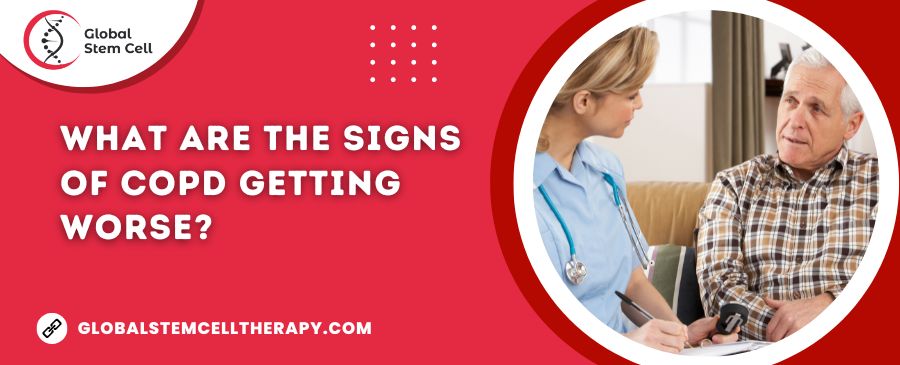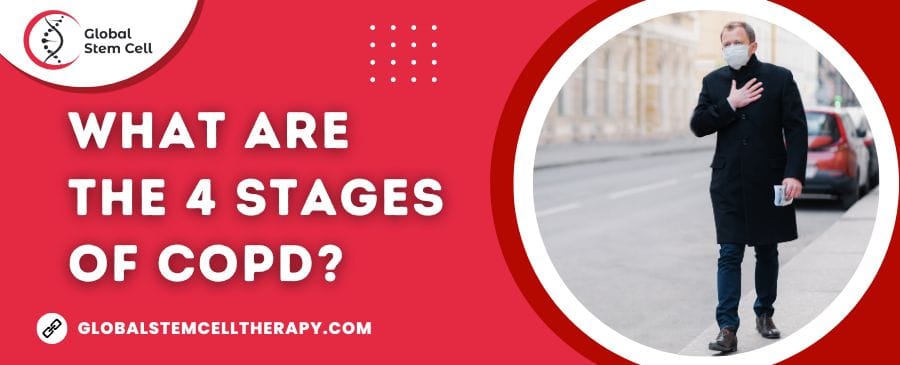
How to Recognize When Your COPD Symptoms Are Worsening
Chronic Obstructive Pulmonary Disease (COPD) is a progressive lung disease that includes chronic bronchitis, emphysema, or both. As the disease progresses, symptoms can worsen, leading to a decline in overall health and quality of life. Recognizing the signs of COPD getting worse is essential for timely medical intervention and better management of the condition.
In this article, we’ll explore What Are the Signs of COPD Getting Worse?, warning signs to watch for, the importance of early detection, and the steps to take if your COPD symptoms are worsening.
Signs and Symptoms Indicating COPD is Getting Worse
Chronic Obstructive Pulmonary Disease (COPD) is a progressive condition, which means that over time, the symptoms may become more severe and have a greater impact on an individual’s daily life. Being able to recognize the signs and symptoms indicating that COPD is getting worse is crucial for seeking appropriate medical care and adjusting treatment plans as needed.
In this section, we will discuss several warning signs that may suggest your COPD is progressing, helping you stay informed and proactive in managing your condition.
Increased Shortness of Breath
Shortness of breath, also known as dyspnea, is a common symptom of COPD. However, if you notice that your breathlessness has become more frequent or more severe, even during routine daily activities, this may be a sign that your COPD is getting worse.
Frequent or Worsening Cough
Coughing is a common COPD symptom, but a persistent or worsening cough could indicate that your condition is progressing. If your cough becomes more frequent or produces more mucus, it may be a sign of COPD getting worse.
Increased Mucus Production
An increase in mucus production, especially if it’s thick or discolored, can be a sign that your COPD is worsening. This may also be accompanied by a change in the color or consistency of your sputum (mucus).
Frequent Respiratory Infections
People with COPD are more susceptible to respiratory infections like colds, flu, and pneumonia. If you experience frequent infections or if they take longer to recover from, it could be a sign that your COPD is getting worse.
Swelling in the Ankles, Feet, or Legs
Swelling in the lower extremities can be an indication of fluid retention, which may be a sign that your COPD is progressing. This can occur due to decreased oxygen levels in the blood, leading to poor circulation and fluid buildup.
Fatigue and Weakness
Persistent fatigue and weakness can be signs that your COPD is worsening. If you find yourself struggling to complete daily tasks or feeling exhausted despite getting enough rest, it’s essential to discuss these symptoms with your healthcare provider.
Unintended Weight Loss
Unintended weight loss can be another sign of worsening COPD. As the disease progresses, it may become more challenging to maintain a healthy weight due to increased energy demands from breathing difficulties.
The Importance of Early Detection and Intervention
Detecting the signs of COPD getting worse is crucial for timely medical intervention. Early detection allows your healthcare provider to adjust your treatment plan, which may include changes in medication, oxygen therapy, or pulmonary rehabilitation. Addressing worsening symptoms as soon as possible can help slow the progression of COPD, improve your quality of life, and reduce the risk of complications.
What to Do If Your COPD Symptoms Are Getting Worse
If you suspect that your COPD is getting worse, it’s important to take action:
- Consult your healthcare provider. Discuss your symptoms and concerns with your doctor, who can evaluate your condition and recommend any necessary adjustments to your treatment plan.
- Monitor your symptoms. Keep a symptom diary to track your COPD symptoms and any changes you notice. This information can be helpful when discussing your condition with your healthcare provider.
- Follow your treatment plan. Adherence to your prescribed treatment plan is crucial for managing COPD. Make sure to take your medications as directed, attend medical appointments, and participate in pulmonary rehabilitation if recommended.
- Stay active. Engage in regular physical activity, as it can help improve your lung function, endurance, and overall well-being. Discuss with your healthcare provider which exercises are appropriate for your condition and level of fitness.
- Avoid triggers. Identify and avoid environmental triggers that can worsen your COPD symptoms, such as cigarette smoke, air pollution, and allergens.
- Practice good hygiene. Wash your hands frequently and avoid close contact with people who are sick to reduce the risk of respiratory infections.
- Seek support. Managing COPD can be challenging, so don’t hesitate to reach out to friends, family, or support groups for emotional support and practical assistance.
At end, recognizing the signs of COPD getting worse is essential for better disease management and overall health. By staying informed, vigilant, and proactive about your condition, you can work closely with your healthcare provider to address any worsening symptoms and maintain the best possible quality of life.
Frequently Asked Questions (FAQs)
What are the common symptoms of COPD?
The common symptoms of COPD include shortness of breath, persistent cough, increased mucus production, wheezing, and chest tightness. The severity and frequency of these symptoms can vary from person to person.
How can I tell if my COPD is getting worse?
A: Signs that your COPD is getting worse may include increased shortness of breath, more frequent or worsening cough, increased mucus production, frequent respiratory infections, swelling in the ankles, feet, or legs, fatigue and weakness, and unintended weight loss. If you notice any of these symptoms, consult your healthcare provider.
What should I do if I think my COPD is getting worse?
If you suspect that your COPD is getting worse, consult your healthcare provider to discuss your symptoms and concerns. They can evaluate your condition and recommend adjustments to your treatment plan if necessary. It’s also essential to monitor your symptoms, follow your treatment plan, stay active, avoid triggers, practice good hygiene, and seek support.
Can COPD be cured?
There is currently no cure for COPD. However, with proper treatment and management, the symptoms can be controlled, and the progression of the disease can be slowed. Early diagnosis and intervention can significantly improve the quality of life for people with COPD.
What are the risk factors for COPD?
The primary risk factor for COPD is smoking, but other factors such as exposure to secondhand smoke, air pollution, occupational exposure to dust and chemicals, and a genetic predisposition (alpha-1 antitrypsin deficiency) can also contribute to the development of the disease.





